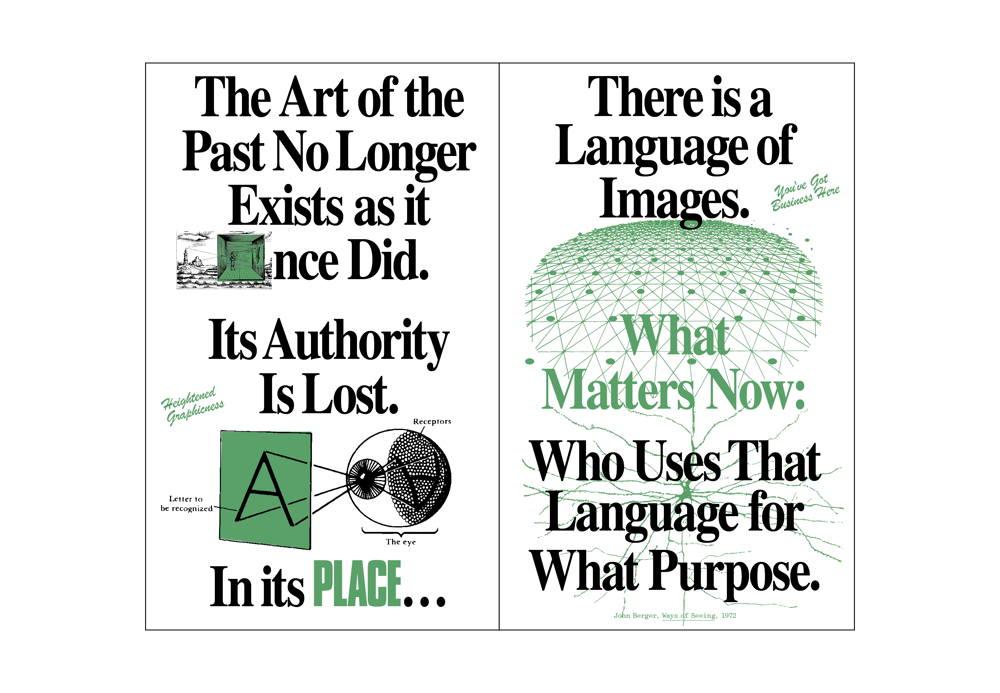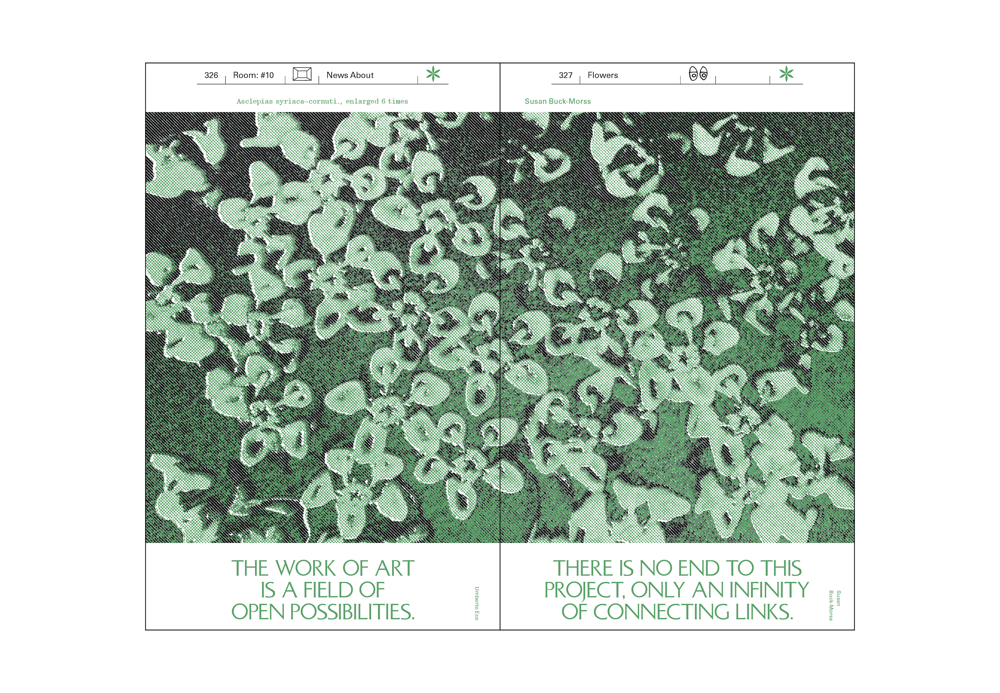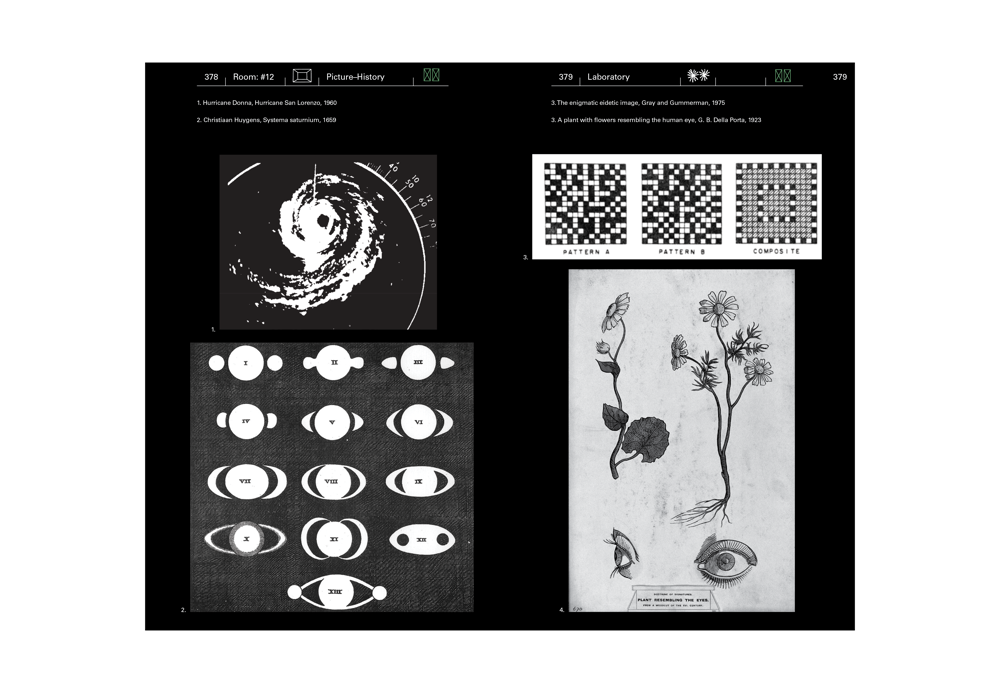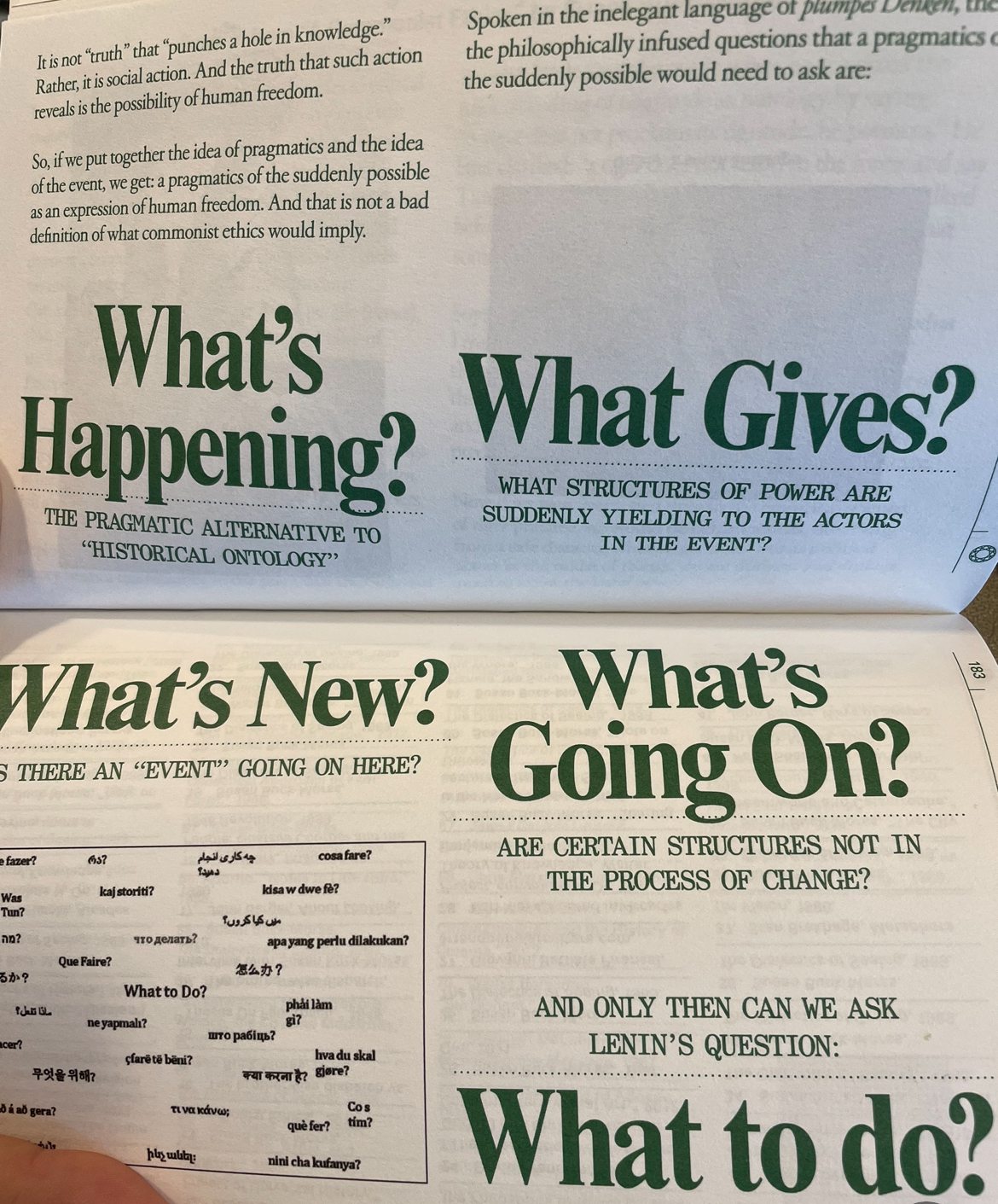

 Reading notes:
Reading notes:
Key quotes from The Task:
- The work of the writer is one of construction and re-construction, and so too is that of the reader/visitor.
- “Benjamin Archiv”
- pg 179
- Detailed observations fit into a larger pattern.
- Richard Bernstein, “Putting Together the Pieces of an Unfinished Book,” 1990.
- 178
- The aim is to construct something new out of old, to connect what may appear dissimilar in order to achieve new insights and understanding.
- Michael Shanks, Experiencing the Past, 1992.
- Commit to a graphic, concrete representation of truth, in which historical images make visible philosophical ideas.
- Susan Buck Morss, The Dialectics of Seeing, 1989.
- Ask the reader to patiently reconstruct larger patterns out of the shards that are presented, in the hope that the reader will emerge not only with “hard knowledge” but with the sense of the cognitive processes that produced such knowledge.
- Michael Jennings, “Dialectical Images: Walter Benjamin’s theory of literary criticism,” 1987.
- The dialectical image does not simply copy the dream. But it certainly does seem to me that the former contains within itself the exemplary instances, the interruptions of waking consciousness, and that indeed it is precisely from such places that the figure of the dialectical image first produces like that of a star composed of many glittering points.
- Letter , Benjamin to Adorno, 1935. Emphasis mine
- Reveal an expression of the truth that illuminates the most intimate correspondences between man and the world.
- Jean Selz, “Benjamin in Ibiza,” 1933.
- Develop to the highest degree the art of citing without quotation marks.
- Walter Benjamin, Arcades Project, convolute N, On The Theory of Knowledge, 1927-1940.
- Capture the significance of the insignificant moment.
- Richard Kazis, “Benjmain’s age of mechanical reproduction,” 1977.
- Benjamin the Surrealist collects together the images of the city that the flaneur presents to him, to be left with a vast array of past objects, buildings and spaces that he attempts to reassemble into illuminating order.
- Deborah Parsons, “Streetwalking the Metropolis: Women, the City and Modernity,” 2000.
- …theoretical pragmatics. It is a practice of theorizing whereby things acquire meaning because of their practical, pragmatic relationship with other things, and these relationships are constantly open, constantly precarious. Their future cannot be predicted in advance.
- Rather, it is social action. And the truth that such action reveals is the possibility of human freedom.
- “A Commonist Ethics” by Susan Buck-Morss
